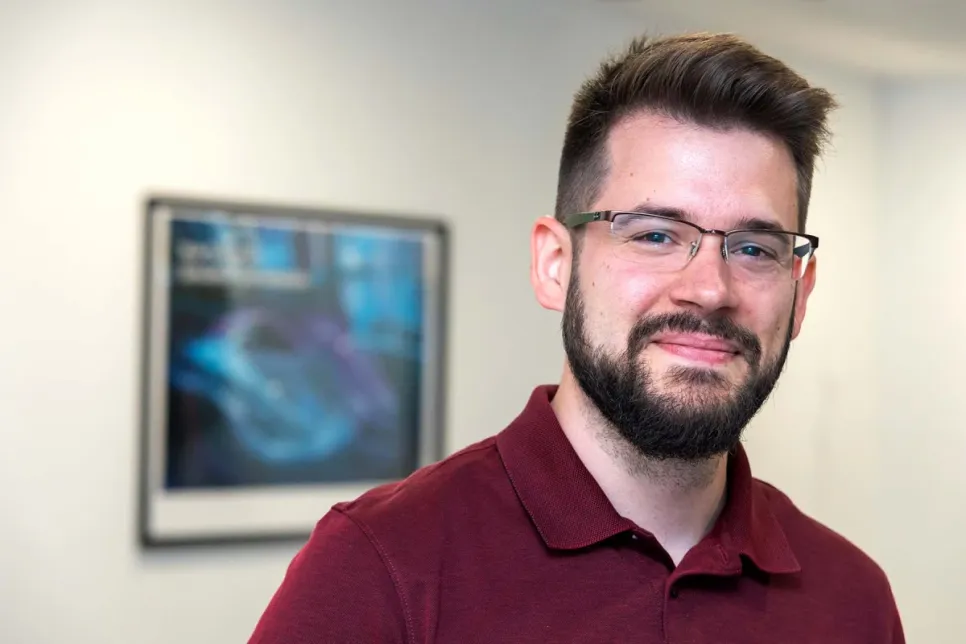Siemens Honors Pioneering Inventors for the 30th Time
This year, for the 30th time, Siemens is awarding the title “Inventor of the Year” to outstanding researchers working in Germany, the United States, China, and Switzerland.

Technical training and career development of employees in their group is key to success of the ompany, said Nenad Licitar, Group Leader of Bus Technologies at dSpace in an interview with ICTbusiness.biz. He is currently working as group leader and in addition, each group leader covers specific technical areas.
The benefit of transferring knowledge to other employees becomes greater than the benefit of having the expert code on the product all day, according to Licitar who points out that the company then needed people in management positions and it was an interesting challenge to take over, the good thing is that the company likes to build people and promote employees from the inside rather than bring people to "high" positions from the outside.
How did you start at dSPACE, and how did you manage to become a group leader?
I started working on dSPACE projects in 2013. This was actually the beginning of dSPACE's cooperation with Zagreb. Then I started as a junior programmer as part of the first job after completing FER, I worked on products that are code generators based on MATLAB \\ Simulink. The customer has the ability to generate code from the Simulink model, the generated code can be executed as a real-time application on hardware systems produced by dSPACE. Over time, I gathered the technical expertise of various dSPACE products and came to the position of holding product responsible functions for various products and leading first one development team, later an additional team, and then the whole group. It is currently a group of 28 developers and consists of several teams. My current job is more focused on organization, knowledge transfer to new employees and younger generations.
What was that transition from development to a leadership position like?
When I started my career I saw myself exclusively in the development of embedded systems, I like to solve logical problems and look for new solutions and that was my expected direction. Over time, it becomes clear to a person that no matter how much expertise he builds, he cannot solve all the tasks alone and that he must rely on them. The benefit of transferring knowledge to other employees becomes greater than the benefit of having the expert code on the product all day. The company then needed people in management positions and it was an interesting challenge to take over, the good thing is that the company likes to build people and promote employees from the inside rather than bring people to "high" positions from the outside. One switch in my career was abandoning the mantra "If you want something done right to it yourself" and leaving complex tasks to younger colleagues. People love complex challenges, why not leave them to others and commit to guiding them along the way. It used to be a pleasure to go home from work and keep in mind that the software problem that bothered you for days have been solved, today it is promoting people to team lead or product responsible positions, and even bring someone to a group lead position where they will take part of my current groups.
What technologies do you use?
We use various technologies in the development of our products, AUTOSAR is a standard that we follow in product development because it guides the rest of the automotive industry, and it is necessary to deal with various programming languages, we use C #, C, C ++, Pyton, MATLAB.
Who do you work with?
We work with more or less the whole car industry, it's hard for me to say a well-known name in the car industry that I haven't seen in years in dSPACE, besides, there are companies that produce truck & trailer systems, aerospace, there are even some application for medicine. In essence, any industry that needs real-time simulations can use dSPACE products. We have the closest cooperation with the German car industry, which is pushing technology and innovation in the automotive world.
Are you primarily focused on cars or in Zagreb on automotive buses?
Yes, over half of the Zagreb department deals with products that are simulators for automotive buses. CAN and LIN buses, as well as the CAN FD extension are still widely used in all new cars, and automotive Ethernet is increasingly present, which has been our focus of development recently. Cars today have more and more ECUs that have to communicate with each other, and the amount of data transmitted between them is increasing. It is logical that higher bandwidth buses such as Ethernet will come into the story, and in the future CAN XL could also enter the story.